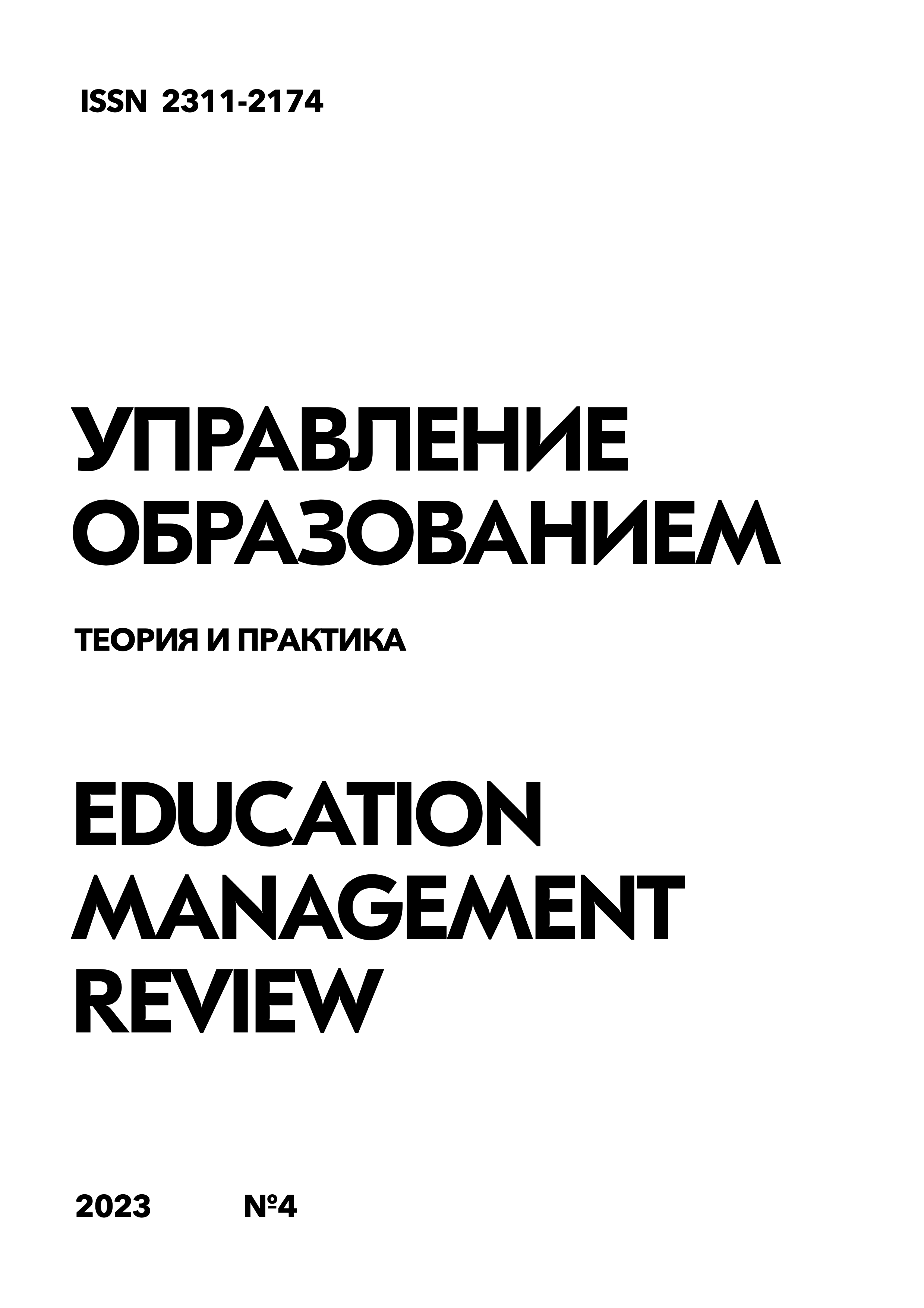Factors of formation of readiness for entrepreneurial activity of students-entrepreneurs
DOI:
https://doi.org/10.25726/q9637-8699-5208-jKeywords:
entrepreneurial activity, entrepreneurial abilities, factors of formation of readiness for entrepreneurial activity, intrapersonal conflict, innovative educational technologiesAbstract
This article deals with the problem of taking into account the factors of students' readiness for entrepreneurial activity and the conditions for the use of innovative educational technologies for their gradual formation. The willingness to be an entrepreneur and achieve good results in the implementation of business projects is formed under the influence of a number of objective and subjective reasons. Having objective knowledge, skills and abilities is not always enough. We need other, equally important personal characteristics that determine a person's ability to get out of the "comfort zone", help him overcome internal inconsistencies and intrapersonal conflicts. Intrapersonal conflicts have their own specifics among representatives of various professional groups. This publication presents an analysis of intrapersonal conflicts in the context of a system of professionally important qualities of students who already have their own business, while studying in the direction of "Entrepreneurship". The authors believe that with a certain elaboration and constructive resolution of intrapersonal conflicts, future entrepreneurs have a reformatting of subjective characteristics and a positive replacement of destructive motivation is born, which in a negative scenario leads to the collapse of the business. Based on the system model of the analysis of professional characteristics, the personal profile of an entrepreneur is determined and based on it, work is carried out to identify intrapersonal conflicts in problem areas of their localization. Further understanding of the diagnostic results and comparative analysis of the data obtained allows correction of subjective parameters using objective innovative technologies, such as marathon, hackathon, championships and fairs, gamification. These and other methods of modeling professionally important characteristics of an entrepreneur have been verified at the training sites of one of the leading Russian universities engaged in teaching students under the Entrepreneurship program.
References
Анцупов А.Я., Шипилов А.И. Конфликтология. СПб.: Питер, 2015. 528 с.
Волошина Т.А. Обучение предпринимательству в Дании: системообразующие доминанты // Отечественная и зарубежная педагогика. 2018. Т. 1. № 2(48). С.57–67.
Гордова Э.Е. Этическая направленность и ценностные установки в предпринимательской деятельности // Гуманитарные ведомости ТГПУ им. Л. Н. Толстого. 2014. № 2(10). С. 31-40.
Живица О.В., Сульчинская Э.Э. Исследование внутриличностных конфликтов, агрессивности и конфликтности преподавателей высшей школы //Психология. Историко-критические обзоры и современные исследования. 2018. Т.7. № 6А. С.67-73.
Ильин Е.П. Дифференциальная психология профессиональной деятельности. СПб.: Питер, 2008. 432 с.
Подымов Н.А., Сульчинская Э.Э. Проблема диагностики внутриличностных конфликтов в ценностно-мотивационной сфере // Научный результат. Педагогика и психология образования. 2018. №3. С. 71-79.
Позина М.Б. Почему студент не понимает, что «он не понимает» или стратегии обучения продуктивному чтению / Вестник МГГУ им. М.А. Шолохова. Педагогика и психология. 2015. № 4. С. 95- 103.
Потапова О.Н., Алексеева Е.В. Применение интерактивных методов обучения предпринимательству как средство повышения эффективности обучения // Современная конкуренция. 2019. №1 (73). С.17-23.
Рубин Ю.Б. Основы предпринимательства: учебник. М.: Московский финансовопромышленный университет «Синергия», 2016. 464 с.
Сульчинская Э.Э. Ценностно-мотивационный конфликт преподавателей высшей школы: статистический подход // Психология. Историко-критические обзоры и современные исследования. 2019. Т.8. № 1А. С.313-318.
Ханова З.Г. Склонность к предпринимательству как мотивационно-смысловое образование личности / Прикладная психология: основные проблемы, перспективы и новые направления: учеб. пособие / под ред. О.И. Каяшевой, М.Б. Позиной. СПб.: Изд-во «НИЦ АРТ», 2018. С.63-68
Ханова З.Г., Меджидова К.О. Условия формирования мотивации к предпринимательской деятельности у студентов вузов // Высшее образование сегодня. 2019. № 2. С. 45-47.
Шадриков В.Д. Профессиональные способности: монография. М.: Университетская книга, 2010. 320 с.
Bacigalupo M., Kampylis P., Punie Y., et al. EntreComp: The Entrepreneurship Competence Framework. Luxembourg: Publication Office of the European Union, 2016. - 39 р.
Deterding S., Dixon, D., Khaled R., Nacke L. E. From Game Design Elements to Gamefulness: Defining «Gamification» // Mindtrek Proceedings. – New York: ACM Press, 2011. – РР. 9-15.
Entrepreneurship Education at School in Europe: Eurydice Report [сайт]. URL: https://webgate.ec.europa.eu/fpfis/mwikis/eurydice/images/4/45/195EN.pdf (дата обращения 02.07.2020) Brussels: Education, Audiovisual and Culture Executive Agency, 2016. - 236 p.
Francisco-Aparicio A., Gutiérrez-Vela F. L., Isla-Montes J. L., Sanchez J. L. G. Gamification: analysis and application // New trends in interaction, virtual reality and modeling. – London: Springer, 2013. – Рp.113-126.
Gray D., Brown S., and Macanufo J. Gamestorming A Playbookfor Innovators, Rulebreakers, and Changemakers. Sebastopol, CA: O’Reilly Media, 2010. – 110 p.
Hamari J., Koivisto J., Sarsa H. Does gamification work?: A Literature Review of Empirical Studies on Gamification // 47th Hawaii International Conference on System Science. – Waikoloa, 2014. – Рр. 3025-3034.
Kellinger J. J. A guide to designing curricular games: How to «game» the system. Cham, Switzerland: Springer, 2017. – 354 p.
Lameras P., Arnab, S., Dunwell, I., Stewart, C., Clarke, S., & Petridis P. (2016). Essential features of serious games design in higher education: Linking learning attributes to game mechanics. British journal of educational technology, 48(4), 972–994.
Pozina M.B. Contemporary strategies of managing the process of learning (2018). Transilvanian Association for the Literarure and Culture of Romanian People (ASTRA), vol.6, pp. 691-700.
Rubin Yu., Lednev M., Mozhzhukhin D. (2019). Competition Studies: Structuring Competencies in University Entrepreneurship Programs. Higher Education in Russia, vol. 28, no. 1, pp. 21-33.
Sanchez E. Competition and collaboration for game-based learning: A case study. In P. Wouters & H. Van Oostendorp (Eds.), Instructional techniques to facilitate learning and motivation of serious games Heidelberg: Springer, 2017. PP. 161–184.
Sylvester T. Designing games: A guide to engineering experiences. Sebastopol, CA: O’Reilly Media, 2013. – 416 р.
Werbach K., Hunter D. For the Win: How Game Thinking Can Revolutionize Your Business. – Рhiladelphia: Wharton Digital Press, 2012. – 148 р.
Zichermann G., Cunningham C. Gamification by design: Implementing game mechanics in web and mobile apps. – Sebastopol, CA: O'Reilly Media, 2011. – 182 p




